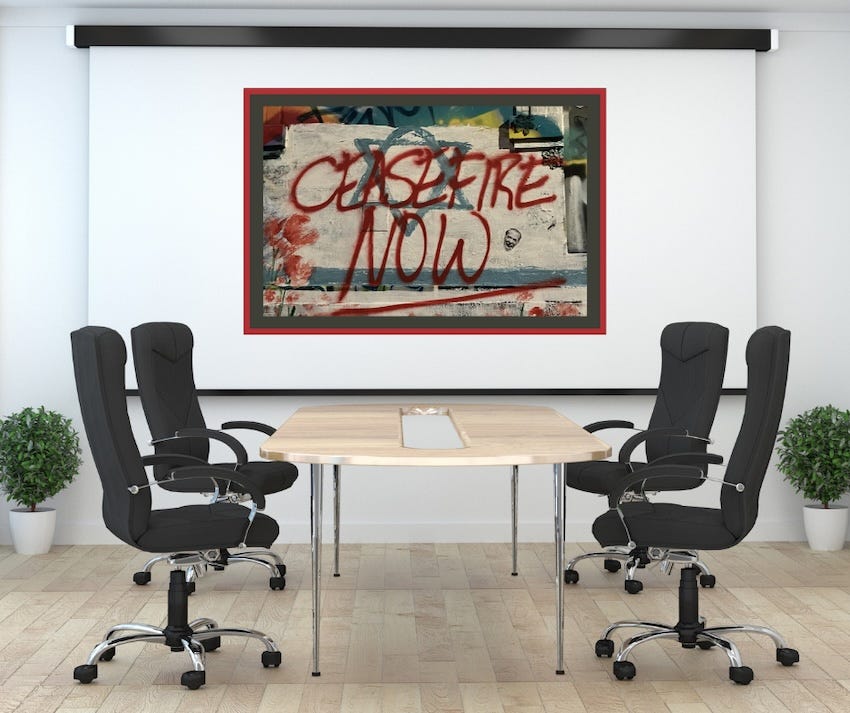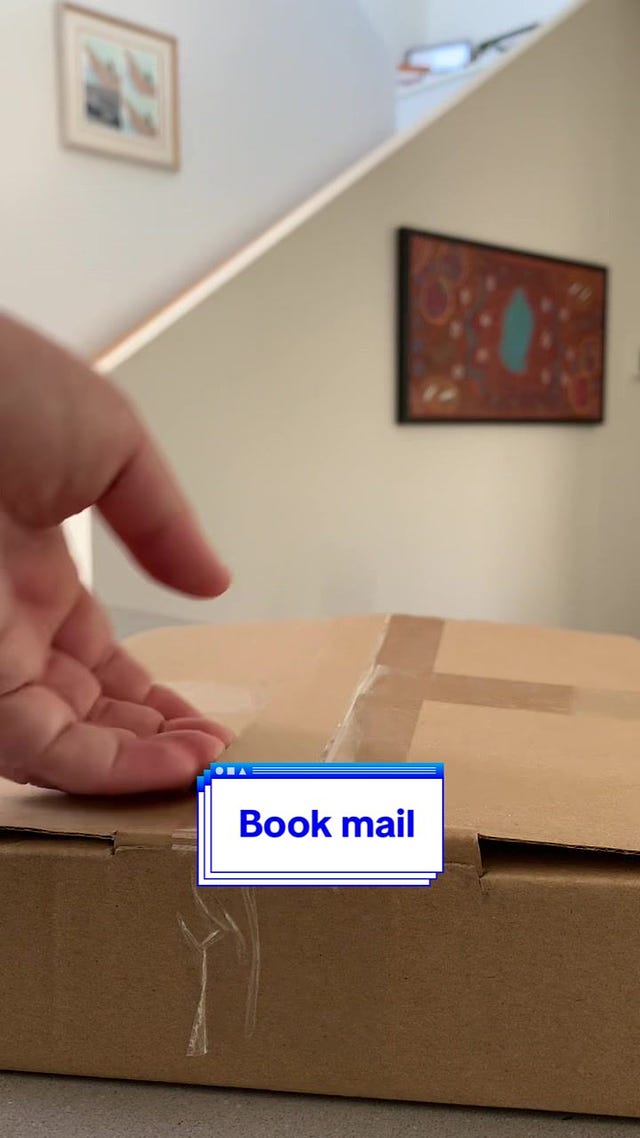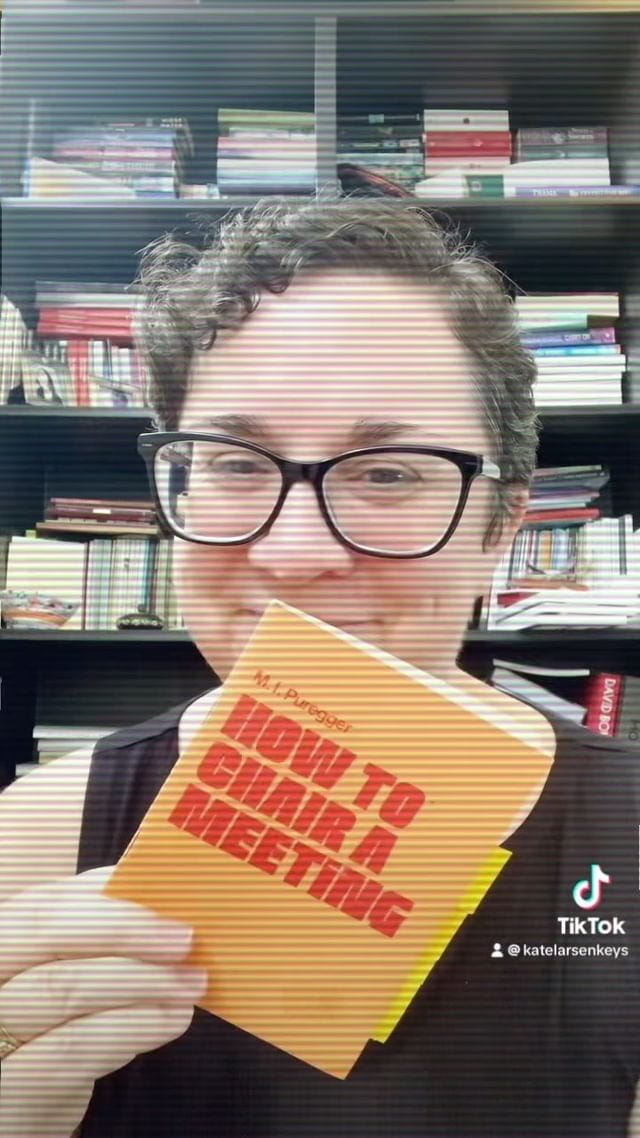The Commons Social Change Library | Online poetry in Australia, China and Hong Kong | (Still) being gaslit about arts governance | Building your author brand
Plus... a new coffee table book, a call to flood the post, and another thing about how to chair a meeting
Governance resources in The Commons
Arts, cultural and community organisations are grappling with how to position themselves at this time. Many are facing criticism: whether for staying silent, for standing in solidarity with Palestine, or for attempting to censor or limit expression in workplaces and events.
So I am proud that my recent provocations for orgs and boards on Palestine as an issue of governance, risk and reputation management and duty of care have been included in The Commons Social Change Library. Because we aren’t just losing humans, but our humanity. And because we will be seen to be culpable in the things we don’t help change.
The combined resources are now available on The Commons website.
Poems, place and digital space
“In Australia, young writers turning to TikTok or Instagram for part or all of their poetry practice is now completely normal—even expected. This has not only released new generations of poets from the need to get through or around literary gatekeepers (which they may not even know exist), but also from outdated stigmas around the validity or reputation of self-publishing.
Digital space still is, however, privileged. Having fewer gatekeepers also doesn’t mean that digital space is free from all forms of control. The internet is global but not all-inclusive, with barriers found in the form of literacy, language translation, the availability and accessibility of technology and the ability to pay for that technology and access it without restraints.”
Originally published in Westerly 68.2, my latest essay explores the relative freedoms of digital poetry practice through the lens of my own Australian experience: how geographical jurisdictions continue to influence the internet’s (seemingly) borderless realms, and how the monitoring or restriction of social media or other digital platforms (or even the threat of doing so) in places like Hong Kong and China can affect the creation of contemporary digital poetry and how it gets into the world.
The full essay is now available on my website.
Are we still being gaslit about arts governance?
It’s been a year since my ‘and another thing’ vlog on the confusion between what Board members think we need to do and what our legislation and organisations actually require of us. I am delighted to report that this provocation has since led to conversations and interventions with arts, cultural and not-for-profit Boards across Australia, and recently been cited by Circus WA as the direct motivation behind its radical governance restructure.
Online workshop on building your author brand
It’s more important than ever for writers to think about their profile, reach and brand, no matter where you are in your publishing journey.
Join me on the 29th of June to find out what options are available to you, how to use different platforms to your best advantage, and how to balance your writing time alongside the time you need to spend building your brand as a writer. Book your place on the Writers SA website.
(Can’t make the workshop? You can still find some recent thoughts on online profiles and platforms on my website.)
Coming to a coffee table near you
Lovely to find my catalogue essay about Adelaide-based sculptor Peter Syndicas in The Big Book of Little Art Essays from Flinders Lane Gallery.
A beautiful curation of 110 commissioned essays and images over 10 years of exhibitions, the full-colour, hardcover 536 page behemoth '“offers a rich overview of 36 different award-winning FLG artists' careers.”
It’s nearly time to #FloodThePost again
After six months of genocide in Gaza, it’s never been more important to keep up the pressure on our representatives. So the team at Flood The Post Australia has called for another postcard mail day on Monday 22nd April.
Here are their tips on how to get involved:
Step 1: Get a postcard! You can reuse something you already have lying around the house. Use a marker and write ‘CEASEFIRE NOW’ or a message of your choice over the picture on the front. If you’re feeling creative, make a postcard from scratch.
Step 2: Decide who you send to. We recommend sending to the below addresses, but feel free to send to organisations or other people who hold the power to make change!
Anthony Albanese, Australian Prime Minister, PO Box 6022, Parliament House, Canberra, ACT, 2600, Ngunnawal Country
Penny Wong, Minister for Foreign Affairs, PO Box 6022, Parliament House, Canberra, ACT, 2600, Ngunnawal Country
Tim Watts, Assistant Minister for Foreign Affairs, PO Box 6022, Parliament House, Canberra, ACT, 2600, Ngunnawal Country
Your State Premier and Local Federal MP. Find your Federal MP here: electorate.aec.gov.au
Step 3: Write your message. Write the message in a way that feels natural to you. Remember, you don’t need fancy language to communicate with politicians. It’s all about telling them what you want and why.
Step 4: Get a stamp. It costs $1.20 to send a postcard in Australia (or 60c with a Concession Card).
[Friends, if this is a barrier for you, send me your address and I’ll send you some stamps]
Step 5: Post it! For maximum impact, so all of our postcards arrive at similar times, please post at your local postbox or post office on Monday 22 April before 3pm (or your local postal cut-off time).
Bonus: Share your creation. Take a picture of your work and post it to socials. Tag @FloodThePost_AUS or use #FloodThePostAus.
And another thing… how to chair a meeting
Thanks to a recent trip to my favourite Tarntanta/Adelaide bookshop, Goodwood Books, I just finished How to Chair a Meeting by MI Puregger, an endearing Australian governance artefact from the 1950s with a lot to teach us about how much still needs to change.
These vlogs are exclusively for my Patreon followers. You can access the full archive by joining me as an advocate, ally or accomplice from just $2.50/month on Patreon).







